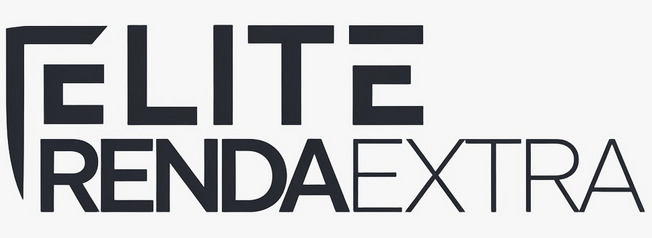Finding the best financing rates can be easy and save you lots of money. Start by understanding your credit options in the USA. This is essential for big purchases or when you’re looking to refinance a loan. Getting the right deal can make a huge difference in your expenses.
Having a credit score of 670 or higher can get you the best car loan deals. A good credit score means lower interest, saving you a ton of money. So, make sure your credit report is in top shape before you look for your next auto loan!
Understanding Financing Options Available to You
Finding the right financing choice is key to reaching your personal and business ambitions. You might be looking at personal loans for a home makeover, wanting to know the best auto loan options, diving into mortgage types, or thinking of growing your business with a loan. Each financing type has its own pros and cons.
Types of Financing: Loans, Mortgages, and More
The U.S. offers many financing paths. From common home-buying loans to targeted FHA and VA loans for certain people, it’s important to know the differences. FHA loans, for example, are great for those with lower credit scores because they require smaller down payments. VA loans offer big perks to vets and their families, making it easier to own a home.
| Loan Type | Benefits | Ideal For |
|---|---|---|
| Conventional | Lower costs than FHA loans | Buyers with good credit |
| FHA | Low down payments | First-time homebuyers |
| VA | No down payment required | Veterans, Active Military |
| USDA | Targeted to rural residents | Low- to middle-income families |
Personal vs. Business Financing
Personal loans can be crucial for big spends like home upgrades or fixing your car. They’re usually unsecured, which means you don’t need collateral. This can make things easier, but sometimes the interest rates are higher. On the flip side, business financing means getting loans for your company, which might need you to show how strong your business finances are.
Secured vs. Unsecured Loans
Choosing between secured and unsecured loans is important. Secured loans need collateral, like your house or car, which can lead to lower interest rates. Unsecured loans don’t ask for collateral but depend more on your credit score and income. They could be a good option if you need funds fast and don’t want to risk your assets.
Modern financing can be tricky, so it’s crucial to consider your options carefully. Whether you need a car loan, a personal loan for unexpected expenses, or you’re exploring mortgages and business loans, making informed choices is key to your financial well-being.
Factors That Influence Financing Rates
When you’re looking to finance something important, know that many things affect interest rates. These range from the economy’s overall health to the specific policies of lenders. By understanding these elements, you can often predict changes in rates. This may help you get a better deal.
Your Credit Score and Its Importance
Your credit score plays a big role in the interest rates you can get. A high score suggests to lenders that you’re reliable, leading to lower rates. Keeping a good credit score is key for favorable loan terms.
Market Conditions and Economic Indicators
The economy plays a big part in setting lending rates. Things like inflation and the Federal Reserve’s actions have direct effects. High inflation leads to higher rates, while economic lows might prompt lower rates to boost spending.
The Role of the Lender’s Policies
Lenders have their own rules that impact the rates they offer. They look at your credit and other personal factors. Each lender values these differently, so it’s smart to compare rates from various sources.
| Economic Condition | Impact on Interest Rates | Examples |
|---|---|---|
| Increase in demand for credit | Rises | Business booms, consumer spending up |
| Decrease in demand for credit | Lowers | Recession, increased saving |
| Increase in supply of credit | Reduces | More lending options available |
| Strong economic growth | Increases | Greater investment in businesses |
| Policy rate changes | Varies | Fed decisions on interest rates |
Many factors, including economic indicators, market conditions, lender policies, and your credit score, affect financing rates. Staying updated on these areas can help you secure the best financing rates available.
Tips to Improve Your Financing Rate
Getting a good financing rate is key to keeping your finances healthy. It can save you a lot of money. Here are some tips to get better rates. Work on your credit score, shop around for lenders, and learn how down payments help.
Boost Your Credit Score Before Applying
To raise your credit score, manage your debt smartly. Always pay bills on time to possibly boost your score by 50 points. Stay under 30% credit use. Doing this helps improve your credit and get lower rates.
Shop Around: Comparing Lenders
It’s important to look at different lenders. They have their rates based on risk and the market. By comparing, you could save a lot. Do your research and read reviews to find the best lenders.
Consider a Larger Down Payment
Knowing how down payments work can help you a lot. A bigger down payment lowers the loan amount and risk for lenders. This can mean better rates, smaller monthly payments, and less interest over time.
Here’s a table showing how credit scores and down payments change rates:
| Credit Score Range | Typical Financing Rates | Down Payment Effect |
|---|---|---|
| 700+ | 1-3% lower than average | Significant rate reduction |
| 650-699 | Average rates | Moderate rate reduction |
| 1-3% higher than average | Minimal rate reduction |
By improving your credit, comparing lenders, and making a bigger down payment, you can get the best rates. This helps you save money now and in the future.
How to Compare Financing Offers Effectively
When you’re looking to finance something important, it’s key to understand all your options. You need to look at the annual percentage rate (APR), any hidden fees, and how flexible the loan terms are. This helps you choose financing that fits both your current situation and your future goals.
Understanding APR vs. Interest Rate
The Annual Percentage Rate (APR) tells you more about the real cost of a loan than just the interest rate. It includes interest plus other charges you have to pay to get the loan. This way, you know exactly what it will cost you. While interest rates might be 5% to 10% a year, the APR includes extra fees, giving you a clearer picture of the total loan cost.
Hidden Fees: What to Watch For
Watch out for hidden fees in loans, like origination fees, late payment penalties, and fees for paying off your loan early. An origination fee can be up to 1% of the loan amount, which can add a lot to the cost. These fees are especially important in long-term loans, like mortgages. Even a small fee can end up costing you a lot over time.
Loan Terms: Length and Flexibility
The length and flexibility of your loan matter a lot, too. Personal loans usually last between 2 to 7 years, while mortgages can go up to 30 years. It’s smart to choose a loan that lets you adjust terms as your financial situation changes over time. This flexibility can help you manage your finances better in the long run.
| Type of Loan | Nominal Interest Rate | APR (Including Fees) | Term Length |
|---|---|---|---|
| Personal Loan | 5% – 10% | 6% – 11% | 2 – 7 years |
| Mortgage | 3% – 7% | 5% – 9% | Up to 30 years |
| Auto Loan | 3% – 7% | 4.17% – 7.17% | 5 – 7 years |
By learning all about financial terms and comparing options, you put yourself in a strong position to pick the right loan. The right financing choice can save you a lot of money. This shows why doing your homework before making financial decisions is so important.
The Importance of Financial Documentation
When you’re looking at financing, how complete and accurate your financial docs are really matters. Having all the right loan application documents ready not only makes things go smoother but also helps you get better rates.
Necessary Documents for Loan Applications
Getting your documents ready for a loan is key. You will need to have your personal and business tax returns, recent bank statements, and info on what you owe. These documents help show your financial health.
How Your Financial History Affects Rates
Your financial history shows how well you handle money. A good history means you make payments on time and have a strong credit score. Lenders see you as trustworthy, which can lead to better interest rates.
Businesses with good financial records often get approved easier and can get better terms. For example, they can see up to a 50% better chance of getting approved. They might also get to talk down their interest rates by 1-2%.
| Impact | Percentage | Explanation |
|---|---|---|
| Approval Rates Increase | 50% | Businesses with complete financial documentation often see higher approval rates for loans. |
| Negotiation for Lower Rates | 1-2% | Financially prepared businesses can often negotiate better interest rates. |
| Loan Approval Speed | 30% | Organized financial documentation can expedite the loan approval process. |
If you don’t provide enough documents, it could slow things down and hurt your credibility. Poor paperwork can cause delays and mistakes for nearly 60% of businesses. This might lead to not so great loan terms.
Having the correct loan application documents and a good financial history can really help you. They enable better financial planning and improve your chances of getting good terms. It’s crucial to have your documents right and complete.
When to Lock in Your Financing Rate
Knowing when to lock in your financing rate can protect you from changing interest rates. This helps you manage your money better. It is important to understand the benefits of a rate lock. This makes your loan application timing critical for good financing rates.
Timing Your Application
Applying for a loan at the right time is key to getting the best interest rates. It’s best to apply when your credit is good and the market looks favorable. Interest rates change daily based on the economy and housing market.
When the economy is strong or housing demand is high, rates can go up. But in bad times, rates might drop to help growth. By watching these trends and picking the right time, you can get a better rate.
Understanding Rate Locks and Their Benefits
Rate locks are super helpful when interest rates keep changing. They mean your lender will keep a certain rate for you for a set time, like 30 to 120 days, no matter what happens in the market. If you lock a rate of 6.68% for 45 days and rates go to 7%, you save money.
Let’s dive deeper. Locking in a rate could save a lot on your loan. For example, on a $300,000 loan, a rise from 6.68% to 7.5% could increase interest payments by $26,442 over 30 years. The small fee for a rate lock is worth it compared to these savings.
Rate locks are even more critical for loans like Adjustable-rate mortgages (ARMs) and home equity lines of credit (HELOCs). These are affected by changes in the Federal Reserve rates. You want to lock your rate before any expected rate increases.
The choice to lock in a rate comes down to careful planning. Consider how long you’ll have the loan, and keep an eye on economic signs like the 10-year Treasury yield. With the right strategy, you can get a good rate and make budgeting easier.
Finding the Best Lenders for Financing in the USA
Looking for the best loan rates means comparing top lenders, including major banks and credit unions in the USA. When needing a loan, like a mortgage, it’s key to know what each lender offers. Banks such as Chase, Bank of America, and PNC Bank stand out for their loan deals and services. For instance, Chase provides low down payment options for some loans and scores 4.9 on Bankrate, showing their quality.
Top Banks and Credit Unions to Consider
Credit unions like Navy Federal and PenFed offer great customer service and often lower rates because they’re not-for-profit. But, joining them may be a requirement. Navy Federal and PenFed both have a Bankrate Score of 4.8, showing they’re good at satisfying their customers. These scores, down payment needs, and credit requirements are crucial to look at when comparing lenders. Veterans United Home Loans is top-rated by Bankrate for its dedication to veterans, offering special VA and USDA loans with no down payment for those who qualify.
Online Lenders: Pros and Cons
Online lenders are another option, especially for those with not-so-great credit. They offer a way to compare loans online, suited to different financial situations, and usually work faster. But, while they’re helpful for those with lower credit scores, it’s vital to consider their customer service and funding speed. With over 50 mortgage lenders reviewed by NerdWallet, you have many options. Thorough research helps you find the right loan for your needs.
Exploring both traditional and online lenders thoroughly makes a big difference. Aim for a loan that fits your immediate needs and helps your financial health in the long run.
If this topic caught your attention, you’ll find more useful information here.
FAQ
How can I get the best financing rates in the USA?
To get the best rates, first work on your credit score. It’s key for getting good terms. Also, compare offers from banks, credit unions, and online. Negotiating and getting prequalified can help too. Remember, total costs include more than just the purchase price.
What types of financing options are available?
You can find personal loans, auto loans, mortgages, and business loans. Each has its use, like for buying a car or growing a business.
What is the difference between personal and business financing?
Personal financing is for things like medical bills or paying off debt. Business financing helps with business costs or expanding your company.
Should I choose a secured or unsecured loan?
The choice depends on your situation. Secured loans need collateral but have lower rates. Unsecured loans don’t need collateral but might cost more and have tougher credit needs.
Why is my credit score important for financing rates?
Your credit score shows how reliable you are with money. A higher score means better loan terms and savings. Lenders check it to see how risky it is to lend to you.
How do market conditions and economic indicators influence financing rates?
Things like inflation and the economy’s health affect interest rates lenders offer. These can change, making loans more or less expensive.
What role do lender’s policies play in determining my financing rate?
Lenders’ rules, like who they’ll lend to and on what terms, set your rates. Different lenders have different rules, so it’s good to understand them.
How can I boost my credit score before applying for financing?
Improve your score by paying bills on time, lowering debt, and fixing report errors. Keeping old accounts open helps too. Tools like Experian Boost might give your score a lift by adding more payment history.
Why should I shop around and compare lenders?
Looking at different lenders lets you find better rates and terms. Research their reputation and loan options before deciding.
What are the benefits of making a larger down payment?
A big down payment means borrowing less, which could get you lower rates. It leads to smaller monthly payments and faster equity build-up.
How do I understand the difference between APR and interest rate?
Interest rate is just the borrowing cost. APR includes this plus any fees, giving a fuller picture of the loan’s true cost.
What hidden fees should I be aware of?
Watch out for fees like origination or late fees. Read loan terms carefully to spot any extra costs that could add up.
What should I consider regarding loan term length and flexibility?
A shorter loan term can save money in the long run but means higher monthly payments. Also, look for loans that let you pay off early without penalties.
What documents will I need for a loan application?
You’ll need proof of income and employment, financial statements, and insurance details. Ensure your documents are up-to-date and accurate.
How does my financial history affect the rates I am offered?
A solid financial history means you’re less risky for lenders and can get better rates. This includes steady income and good payment habits.
When is the best time to apply for financing?
Apply when your credit is strong, and interest rates are low. Keep an eye on the economy and your credit status for the best timing.
What are rate locks and how can they benefit me?
A rate lock keeps your loan’s interest rate from going up before closing. It can save you money if rates rise during your loan process.
Which top banks and credit unions should I consider for financing?
Look at big and local banks and credit unions. Credit unions might need membership but often have lower rates.
What are the pros and cons of online lenders?
Online lenders can be faster and easier, even for those with lower credit. But check their legitimacy and understand all fees and terms first.



